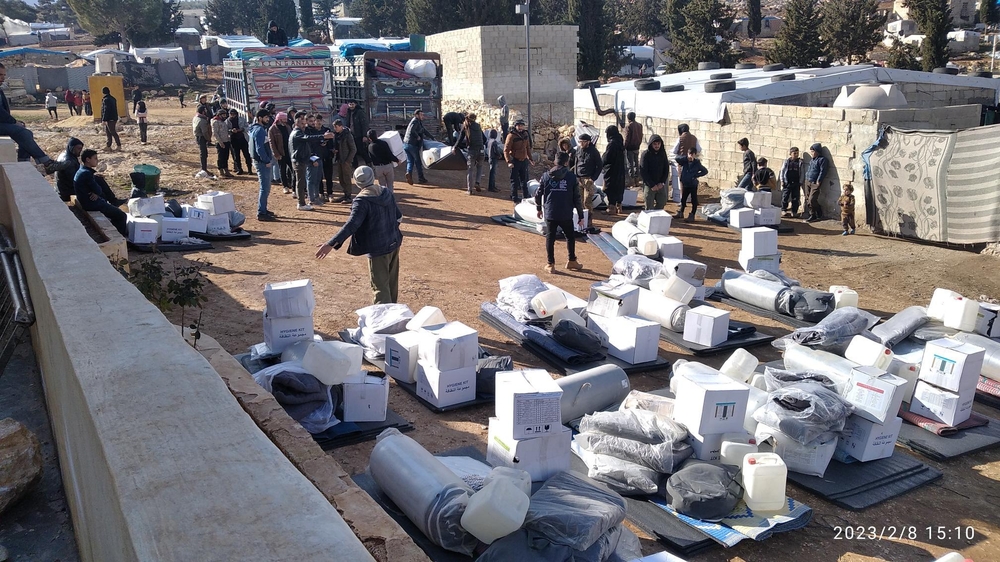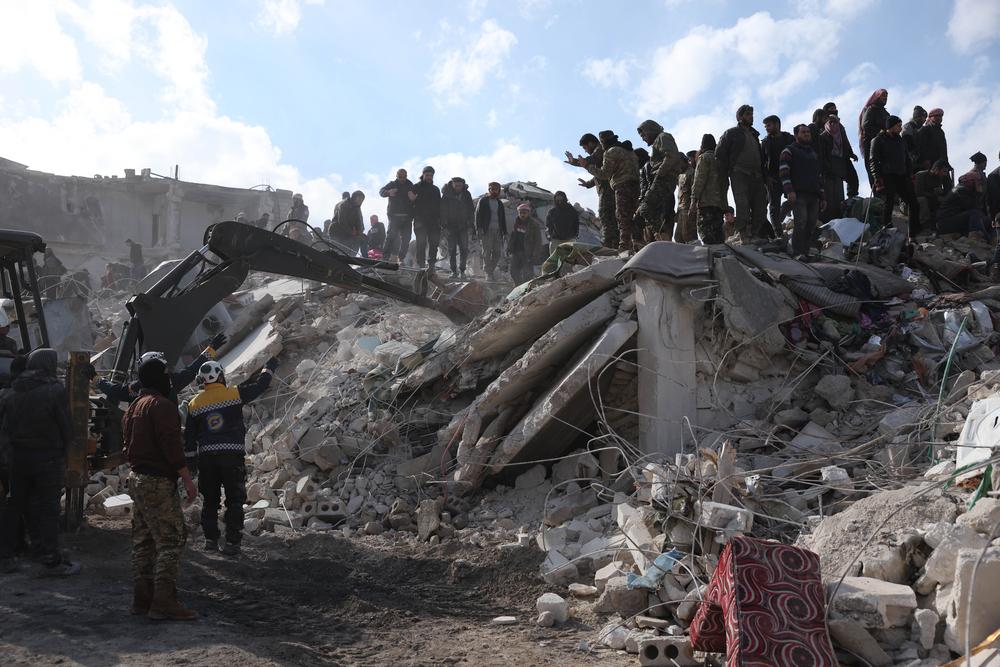The initial magnitude 7.8 earthquake hit Türkiye and Syria at 4:17 a.m. local time on Monday, February 6, 2023. Hundreds of aftershocks, including an unusually strong 7.5 magnitude tremor, struck Türkiye and Syria in the aftermath. This series of aftershocks was the deadliest earthquake to hit the region in more than 20 years.
According to the latest reports, approximately 17,134 people have lost their lives in Türkiye and 3,600 people in Syria, and more than 20,000 injuries have been reported.
What is MSF doing?
Since the first hours of the earthquake, teams supported by MSF have been working to provide medical care and support. Tragically, they too have been affected - one of our staff members is amongst the dead and others have lost members of their families.
Throughout the region buildings have been destroyed, leaving thousands of people homeless. Temperatures are extremely cold, and people are forced to stay outside or in their cars due to the fear of aftershocks.
Our teams – already working in this region hit by many years of war – have been able to provide medical treatment to more than three thousand people. We have increased bed capacity in our hospitals, sent emergency kits to other health facilities and started distributing much-needed blankets and other relief items to families.
Our emergency response in northwest Syria
This is a disaster that compounds an already precarious humanitarian situation for millions of people in Syria. After 12 years of war, a record 14.6 million people need humanitarian assistance in the country. Many have been displaced repeatedly and live in precarious conditions. The massive consequences of this disaster will require an increased international aid effort that is up to the scale.
MSF has supported 30 hospitals and health facilities through donations of emergency kits, trauma kits, medical supplies and blankets. These include facilities in Azaz, Afrin, Mare’, and Bab El Hawa, among other towns. We also sent medical staff, including surgeons, to support hospitals dealing with the influx of wounded.
In four health facilities (hospitals and clinics) in Idlib governorate, we’re treating injured patients, and we increased the capacity of the hospitals we’re working in by adding triage tents in the wards.
In addition, we deployed our ambulances and are currently supporting 90 ambulances to transfer patients needing emergency assistance to the closest health facilities.
We set up mobile clinics in three reception centres deployed in Idlib city and surrounding areas to offer essential medical services to people affected by the earthquakes.
Offering relief support to affected families

Distribution of essential items including hygiene items, kitchen kits, winter kits and blankets, in Jandaris area, in the Afrin district, and in camps and shelter centers receiving people affected by the earthquakes in northern Aleppo [© MSF]
As an initial response, in Aleppo, through our local partners, we distributed food and blankets to more than 500 families in the reception centres in Afrin.
Similarly, we distributed more than 450 kits, including hygiene items, kitchen kits, winter kits and blankets, to affected people in Jindires, one of the most affected cities, and families in reception centres in Azaz and Mare’ and surrounding villages.
In the west of Idlib city, we distributed 2,500 blankets, plastic sheeting, and 100 winter kits to families.
Offering immediate relief support to people affected by the earthquakes, particularly those without shelter in this cold weather, will remain a priority for our team. We will continue to assess the needs and adapt our response accordingly.
Northeast Syria
There has been no major damage or injuries reported at or near our projects in Northeast Syria. However, the team is actively investigating opportunities to provide support to earthquake-affected areas elsewhere in Syria.
Our response in Türkiye
![msb148330_medium.jpeg View of Kahramanmaraş after the earthquakes. [© International Blue Crescent]](/sites/default/files/msb148330_medium.jpeg)
View of Kahramanmaraş in Türkiye after the earthquakes. [© International Blue Crescent]
Well over 100,000 people in Türkiye have been left homeless by the earthquake and its aftershocks. Offering immediate relief support to people affected by the earthquakes, particularly those without shelter in this cold weather, should be a priority. People need shelter, food, blankets, clothes, heating materials, hygiene kits and medical assistance.
We must not forget as well that in places like Gaziantep, there are millions of Syrian refugees, in very vulnerable situations and in precarious shelters.
MSF is ready to provide assistance in Türkiye and to mobilize its emergency capacities. Discussions are ongoing with authorities and local partners regarding the nature of our support.
